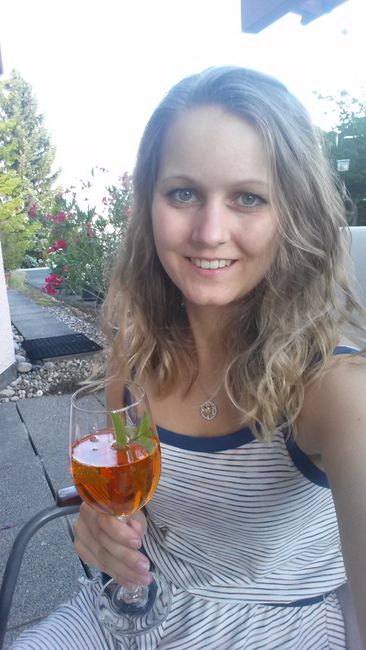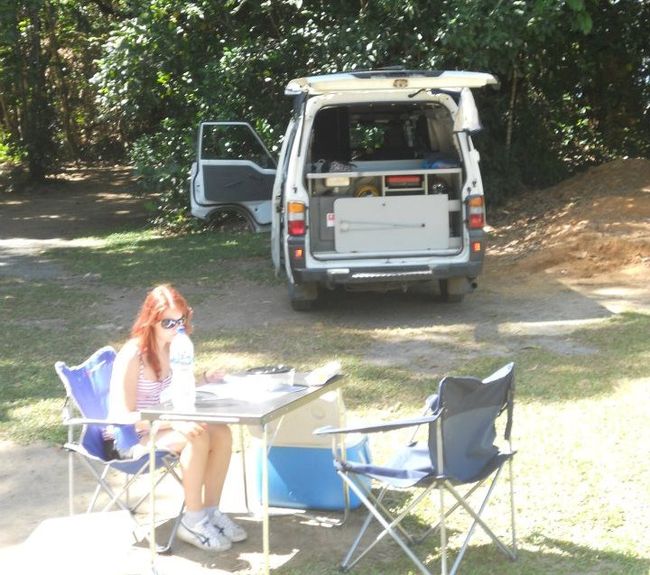Travel preparation - 2 months are perfect
Verëffentlecht: 18.09.2018
Abonnéiert Iech op Newsletter
The idea of traveling alone had been germinating in my head for a long time. However, at the beginning of August, I finally made the decision to turn this plan into reality. It's nice to have visions, but especially at the beginning, you are overwhelmed by all the organizational matters.
Once you know when you want to travel, the climate in your desired country plays a role. Who wants bad weather on vacation? It is best to read several pages about this, as I also received different opinions for Thailand. You need to know that October is still the rainy season there, but that doesn't mean it rains buckets for days. You can always be lucky or unlucky, so I asked an old acquaintance who I knew was there. Her opinion was clear: it can rain heavily, but after an hour it will be beautiful again and it depends on the region.
Here are some more tips that you may not think of on your first trip, but that apply to every trip.
Travel preparation - must be clarified early:
- do you need a passport? If so, how long does it still have to be valid (usually 6 months). Please bear in mind that it takes up to 4-6 weeks to process. In some countries, however, an early passport is sufficient
- do you need a visa? In many countries, this is not a problem, as there is a 'visa on arrival'. That means you will automatically receive a visa on site or after proving that you are leaving the country, which is valid for about 30 days. However, the regulations vary from country to country. If you want to travel to Southeast Asia and enter and leave a country several times, there are also visas with multiple-entry. Find out about the regulations and if necessary, take care of a visa early, as this can take up to 4 weeks.
- do you need vaccinations? Some vaccinations have to be done in 3 doses, with a 2-week interval between each dose. Therefore, it is best to inform yourself about vaccination regulations 2 months in advance and possibly consult a tropical medicine specialist who will inform you about the necessary vaccinations. Hepatitis A and B are generally recommended in almost all countries. I also had other vaccinations, but special caution is often not given in tourist areas. Unless you are traveling to special countries such as Africa or South America.
- travel health insurance
- if necessary, an international driver's license and student ID
The most important organizational matters are done! Now there are things you can take care of at short notice if necessary:
- flights/accommodations
- travel guides/rough travel route
- packing list
Flights/Accommodations:
A good first point of contact for comparing prices is skyscanner.de and momondo.de. However, these platforms only provide an overview of different providers, so additional costs may be incurred during the booking process (e.g. for luggage or credit card payment), which are not initially displayed.
Especially with more expensive flights, you should think twice about how secure the booking really is. It helped me to read some reviews about the different providers in Google. If you read almost exclusively negative reviews on the first 1-2 pages, it doesn't inspire confidence in me. That's why I paid 50 € more and booked through a provider who had good reviews. It can also be helpful to pay attention to where the provider is based, because especially with foreign providers, it can be extremely difficult to get help if something goes wrong.
Book accommodations through Booking.com or similar platforms, and only book for a maximum of 1-2 nights. This way, you have the security of knowing where you will spend the first 2 days, but you can also decide spontaneously where to go next.
Travel guides/Travel route:
Definitely buy a travel guide and preferably a few weeks in advance so that you have time to familiarize yourself with the areas and country-specific information.
A colleague told me about his trip to Thailand and showed me some points on the map, raving about how great it was there. At that moment, I just thought to myself:
'Oh no, the country is so big, I have no idea where to start and what is worth seeing!'
A good travel guide quickly shows you which destinations are popular and worth seeing for tourists. You can familiarize yourself with where things are, what interests you, and possibly plan a rough travel route. You can also find out in advance how to get from A to B. This alone gives you the security of knowing where things are located and gives you an approximate idea of whether the place is touristy or not and what other destinations you can combine with it. That way, the places on Google Maps are no longer just random points, but destinations that you want to visit during your trip.
Packing list:
Here are some basic things that you almost always need. There are many packing lists circulating on the internet, so I'll keep the topic brief. Important:
- carry-on backpack that can also be used as a daypack.
NOTE: max. 1 liter resealable bag for ALL liquids, creams, etc. each of which may contain a maximum of 100ml.
NO sharp objects such as nail scissors, nail files, etc.
Otherwise, take all important documents and as much as possible in your carry-on baggage, as it often happens that suitcases arrive late or not at all. In my opinion, the checked baggage should only contain items that you can do without or that are very large. This gives you more confidence in knowing that you can manage even without your suitcase if necessary.
- Backpacker backpack
- small bag for going out, strolling around the city
- waist bag for storing cash, credit card, etc.
- clothes (as little as possible, it's better to wash them there)
- rain jacket, swimwear
- sturdy shoes, light shoes, flip-flops
- medication, plasters for a small travel pharmacy
- microfiber towels, wet wipes, hand sanitizer
- sunglasses, sunscreen, mosquito repellent
- all important documents as a copy and digital in a cloud/Dropbox
- locks for luggage/lockers
- keychain with a signal tone
- cash in the local currency of the destination country
Nice to have:
- selfie stick
- pocket knife
- needle and thread
- camera, tablet
- flashlight
- earplugs, sleep mask
- sleeping bag liner
- packing cubes (to sort and store clothes)
- adapter with multiple USB ports
Abonnéiert Iech op Newsletter
Äntwert


